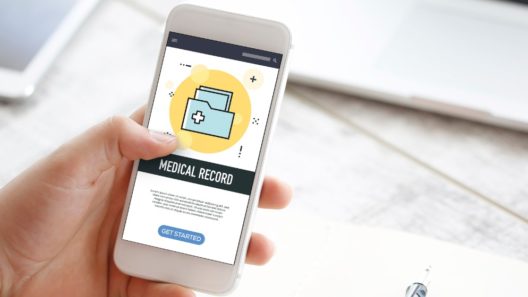Public lacks access to, and has concerns about discriminatory impact of, COVID-19 related technologies
Findings from a survey of public attitudes towards a range of technologies deployed during the COVID-19 pandemic for health outcomes
25 March 2021
Reading time: 6 minutes

A nationally representative survey commissioned by the Ada Lovelace Institute, and supported by the Health Foundation, highlights a ‘data divide’, of inequalities in access, knowledge and awareness of digital health technologies used in the pandemic, such as symptom-tracking apps, contact-tracing apps and consumer-facing mental and physical health apps. It also finds that over half the UK public is concerned about the potential discriminatory impact of vaccine passports.
- One fifth (19%) of the UK population say they did not have access to a smartphone, and another 14% do not have access to broadband internet.
- 60% of the UK public have not heard of symptom tracking apps such as the ZOE COVID Symptom Study, and just over half – 52% – had not heard of the availability of online medical appointment services.
- Over half (54%) think it is likely that vaccine passports would lead to discrimination against marginalised groups.
The findings of the survey, detailed in the report – The data divide – highlight a stark divide in people’s experiences of technology used during the pandemic, including symptom-tracking apps, contact-tracing apps and consumer-facing mental and physical health apps.
The survey finds that, while these apps have been of immense value during the pandemic, particularly for health purposes, a significant proportion of the public lacks adequate access to data infrastructures, such as broadband, connectivity and smartphones. One fifth (19%) of the UK population say they did not have access to a smartphone, and another 14% do not have access to broadband internet. The most clinically vulnerable people, and those on the lowest household incomes (less than £19,999 p.a.) are among the most likely to not have access to either broadband or a smartphone.
A sizeable proportion of the population lacks awareness of the existence of health technologies. This is impacting people’s ability to access, and therefore benefit equally, from these technologies. 60% of survey respondents had not heard of symptom tracking apps such as the ZOE COVID Symptom Study, and just over half – 52% – had not heard of the availability of online medical appointment services. 51% had not heard of the availability of mental health apps.
The top reasons cited for not using these technologies relate to concerns around accuracy and effectiveness, and people with disabilities or who identified as clinically vulnerable, were less likely to feel such apps would be effective.
The research provides a timely insight into the public’s attitudes towards vaccine passports, as the UK Government is currently reviewing possible roll-out of COVID-status certification with a taskforce chaired by the Rt Hon Michael Gove MP.
Just over half (54%) think it is likely that vaccine passports would lead to discrimination against marginalised groups. The research also finds that people from Black, Asian and minority ethnic communities indicated higher levels of concern of the potential discriminatory impact of vaccine passports than White respondents (a difference of 18%). Two thirds (64%) of the public are not concerned that vaccine passports will be discriminatory against themselves as individuals.
Based on these findings, the Institute calls for policymakers and technology developers to place greater emphasis on understanding the attitudes of the wider population before and during implementation of digital health technologies. This will help to ensure greater public trust and equitable uptake among all groups in society, and therefore equitable distribution of the potential to benefit from the opportunities provided by digital health technologies, both during the pandemic and in the period of recovery that will follow.
Carly Kind, Director, Ada Lovelace Institute, said:
‘The long-researched ‘digital divide’ risks transforming into the ‘data divide’, as data-driven technologies developed in response to the coronavirus pandemic – such as vaccine passports, symptom-tracking apps, and digital contact-tracing technologies – benefit, represent and respond to the needs of some people and some groups more than others.
These findings show that we as a society need a much more inclusive approach to developing data, and data-driven systems. And how important it is for developers and policymakers to acknowledge that not everybody has benefited equitably from the use and implementation of technologies during the pandemic – and to find ways to narrow that gap, so that data and AI-powered health technologies can work for all groups in society.’
Adam Steventon, Director of Data Analytics at the Health Foundation, said:
‘Advances in the development and use of data-driven technology could play a critical role in supporting the recovery and improvement of NHS and social care services, as well as the health of the population, in the wake of the COVID-19 pandemic. Decisions made now about how these technologies are designed and deployed will set the precedent for how this happens in the future.
‘However, these survey findings highlight the risk that technologies can exacerbate health inequalities, negatively impacting the most vulnerable and disadvantaged. It is crucial that the forthcoming Data Strategy for Health and Care tackles these issues and ensures that data-driven technologies are designed, developed, deployed and evaluated working alongside the communities that might be most affected by them. This will help ensure data-driven technologies help create better health and care for everyone.’
ENDS
Contact: Hannah Kitcher on 07969 209652 or hkitcher@adalovelaceinstitute.org
Reema Patel, Associate Director, Ada Lovelace Institute will be available for interview.
Notes
- The Ada Lovelace Institute (Ada) is an independent research institute and deliberative body with a mission to ensure data and AI work for people and society. It aims to: build evidence and foster rigorous research and debate on how data and AI affect people and society; convene diverse voices to create a shared understanding of the ethical issues arising from data and AI; and define and inform good practice in the design and deployment of data and AI.
- The Ada Lovelace Institute is funded by the Nuffield Foundation, an independent charitable trust with a mission to advance social well-being. The Foundation funds research that informs social policy, primarily in education, welfare and justice. It also provides opportunities for young people to develop skills and confidence in STEM and research. In addition to the Ada Lovelace Institute, the Foundation is also the founder and co-funder of the Nuffield Council on Bioethics and the Nuffield Family Justice Observatory.
- The Ada Lovelace Institute commissioned Survation to conduct a telephone-based, nationally representative survey of 2,023 UK British adults between 27 January and 24 February 2021. The sample was weighted to match the known profile of the British adult population based on age, sex, region and ethnic group. The survey included a sample boost of 541 respondents from a minority ethnic background within the overall sample size of 2,023.
- Respondents were asked a series of questions on their use of mental and physical health apps, symptom-tracking apps, digital contact-tracing apps, their comfort with those systems and reasons for comfort or discomfort. They were then asked about their perceptions of vaccine-passport schemes.
- This research was conducted as part of a broader partnership between the Ada Lovelace Institute and the Health Foundation that is exploring how the accelerated adoption of data-driven technologies and systems during the pandemic may have affected inequalities. Further information about the partnership can be found at: www.adalovelaceinstitute.org/project/health-social-inequalities-data-driven-systems. The Health Foundation is an independent charity committed to bringing about better health and healthcare for people in the UK. www.health.org.uk.
Related content

The data divide
Public attitudes to tackling social and health inequalities in the COVID-19 pandemic and beyond

A data divide based on access
A significant proportion of the UK public lacks adequate access to data infrastructures, such as broadband, connectivity and smartphones, survey finds

A data divide based on knowledge, awareness and skills
A large proportion of the UK public lacks awareness of the existence of certain COVID-19 technologies, survey finds

A data divide based on use, acceptability and comfort
Differences in public attitudes between those who have chosen to use COVID-19 technologies, and those who have chosen not to